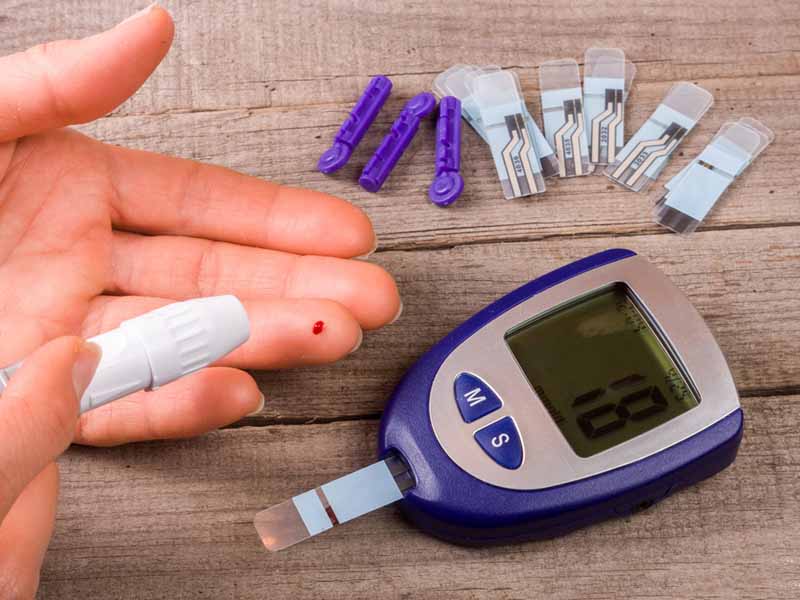Study Examines Physicians’ Views on Routine SMBG
July 17, 2018, 08:46 am News Staff – Although self-monitoring of blood glucose (SMBG) is widely recognized as a useful tool in patients with type 1 diabetes and those with insulin-dependent type 2 disease, debate continues about the value of SMBG in patients with noninsulin-treated type 2 diabetes.
The American Diabetes Association's (ADA's) Standards of Medical Care in Diabetes -- 2018 section on glycemic targets, for example, states that SMBG frequency and timing should be dictated by a patient's specific needs and goals, and that "evidence is insufficient regarding when to prescribe SMBG and how often testing is needed for patients who do not use intensive insulin regimens." In addition, results from a large meta-analysis indicate the clinical utility of SMBG in patients with noninsulin-treated type 2 diabetes has yet to be fully demonstrated.
Nevertheless, many physicians recommend routine SMBG to patients with noninsulin-treated type 2 diabetes. Researchers from Case Western Reserve University School of Medicine and the Cleveland Clinic in Ohio delved into the questions of why and to what degree primary care physicians continue to recommend SMBG to these patients. Results of their research were published in the July/August edition of Annals of Family Medicine.

The researchers interviewed 17 physicians (10 family physicians and seven internists) at 10 sites. Fourteen were identified as "proponents" who recommended routine SMBG; eight of these were "continual proponents" who advocated long-term, routine testing for all patients.
SMBG proponents and opponents agreed on some treatment aspects. For example, all physicians thought that hemoglobin A1c (HbA1c) levels were superior to SMBG readings when choosing a medication for patients. Both proponents and opponents also mentioned cost as a barrier to regular SMBG testing, cited hypoglycemia as a reason to prescribe SMBG, and identified specific patient populations (e.g., those with physical or cognitive disability) who would not be ideal candidates for self-monitoring.
However, proponents and opponents disagreed in several other areas. Most proponents thought that SMBG works best at initial diagnosis, making it easier to provide education and information that encourages patients to actively manage their diabetes. Opponents thought providing in-office education alone was enough to encourage patients to act.
With regard to patient-centered care, proponents focused on SMBG measurements when making shared decisions with patients about food options and lifestyle changes. Opponents, on the other hand, said that reviewing a patient's HbA1c levels with them was sufficient when participating in shared decision-making.
Proponents and opponents also were split on the effect of SMBG on other health care costs. Some proponents thought SMBG could save costs by reducing the incidence of complications, while opponents were concerned that SMBG added to health care costs but had little effect on treatment decisions.
The study authors concluded that many physicians still recommend routine SMBG despite no clear evidence of its effectiveness because they think it "drives the lifestyle changes needed for improved glycemic control." Two factors were thought to be responsible for this belief. First, some patients may have successfully modified their lifestyle habits after being prescribed SMBG. Physicians may recall these earlier success stories when encountering new patients with diabetes and continue to recommend SMBG as a result.
The authors also pointed out that a number of ADA recommendations on assessing glycemic control are based on expert opinion rather than peer-reviewed evidence, which may support the belief among some physicians that recommending SMBG makes it easier to foster changes in patient behavior.
Although these study findings will not resolve the SMBG debate, the authors contend that a combination of targeting physician beliefs about the effectiveness of self-monitoring and policy-based interventions may reduce the practice. Such an approach may lead to reduced health care spending while causing patients little to no harm.
Related AAFP News Coverage
New Diabetes Diagnosis Could Benefit Household
FPs Can Leverage 'Teachable Moment,' Says Researcher
(7/13/2018)
ACP Calls for Moderate Glycemic Control in Type 2 Diabetes
(3/9/2018)
More From AAFP
American Family Physician: Self-Monitoring of Blood Glucose in Patients with Type 2 Diabetes Not Using Insulin
(5/1/2012)
Additional Resource
FamilyDoctor.org: Diabetes